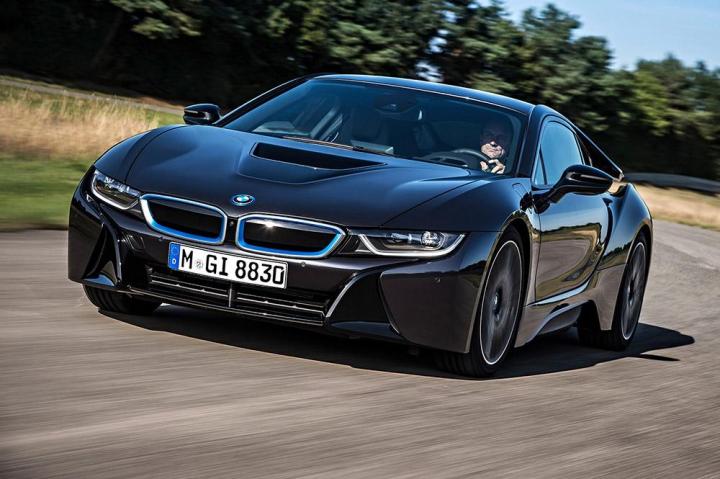
It’s no secret that BMW and Toyota are working together, but the exact fruits of their combined labors haven’t emerged yet.
Last year, the two companies signed a memorandum of understanding that laid the foundation for collaboration on hybrids, hydrogen fuel cells, and even a sports car.
There was some disagreement on how to proceed with that last item, but Australia’s Motoring reports that BMW and Toyota finally have a game plan: a hybrid supercar.
Motoring recently spotted a BMW i8 at Toyota’s proving ground near Mt. Fuji, reportedly undergoing emissions and durability testing. It claims this is a prelude to a joint supercar development program.
Such a program would give Toyota – the carmaker that popularized hybrids in the first place – a hybrid successor to the Lexus LFA. Toyota wouldn’t just have a new halo model, it would have one with hybrid technology that could be more easily connected to its mainstream models. The marketing department will be happy, at least.
BMW could potentially leverage the platform to build a car that slots above the i8 in its lineup, offering true supercar performance. While the i8 was designed to balance performance and economy, BMW has toyed with the idea of building a more performance-oriented car.

Whatever badge the final product wears, it will arrive just in time to do battle with a slew of hybrid supercars, such as the Ferrari LaFerrari, McLaren P1, and Porsche 918 Spyder.
On a slightly lower rung of the supercar ladder, the next Acura NSX will also be a hybrid, and Nissan is reportedly planning on putting a hybrid powertrain in the next-generation GT-R.
Neither company has confirmed the hybrid supercar plan, so it’s hard to say exactly what the car would be like.
Both BMW and Toyota have significant experience with carbon fiber; the BMW i3 has a carbon fiber-reinforced plastic chassis, and Toyota developed a carbon fiber chassis for the LFA.
If both companies play to their strengths, it seems logical that BMW would supply the gasoline engine, while Toyota would build the rest of the hybrid powertrain around it. The 4.4-liter V8 from the M5 would be a good starting point, but for now that’s pure speculation.
Would you buy a hybrid supercar produced by a globe-spanning corporate partnership? Tell us in the comments.
Editors' Recommendations
- 2022 Toyota Tundra hybrid first drive review: New dog, old tricks
- Lamborghini brings back a legendary supercar as an 803-hp hybrid
- 2021 Toyota Prius vs. 2021 Toyota Prius Prime
- Take a peek under the skin of BMW’s upcoming hydrogen-electric SUV
- BMW’s electric Concept i4 has two words for Tesla’s Model 3: Watch out


